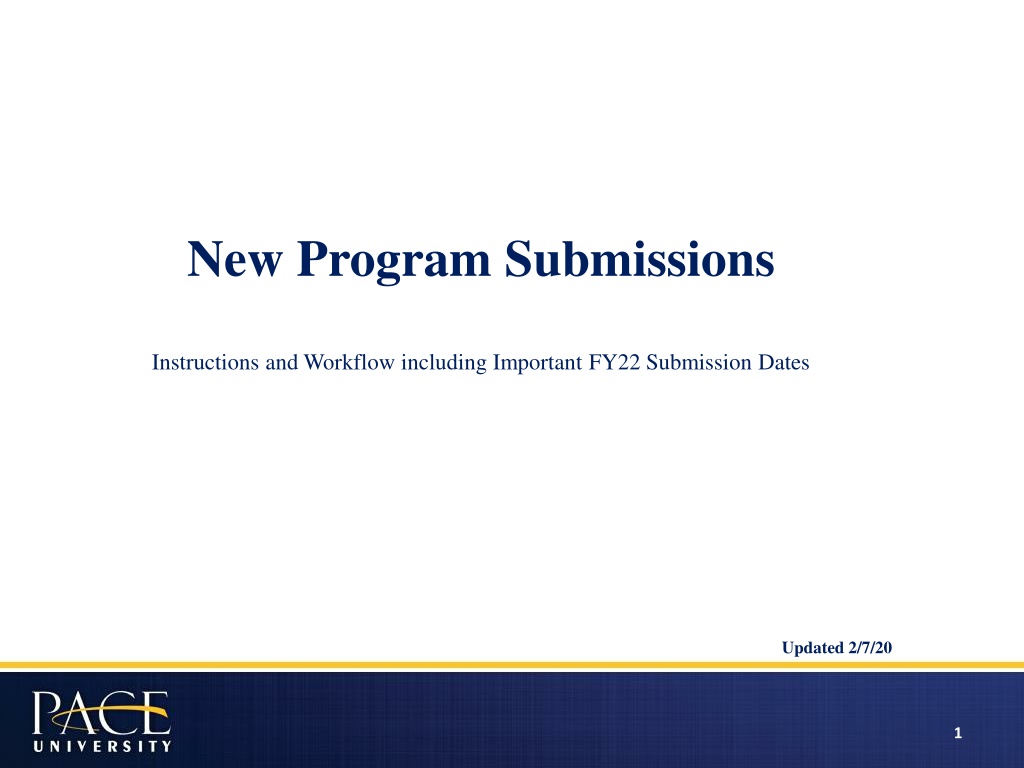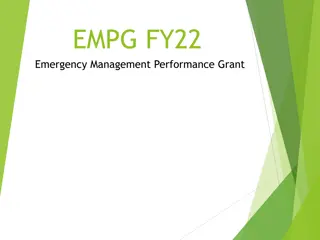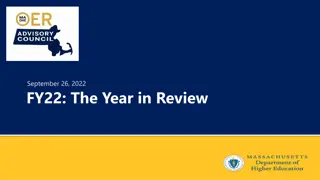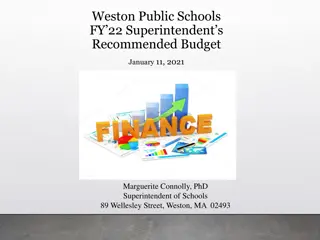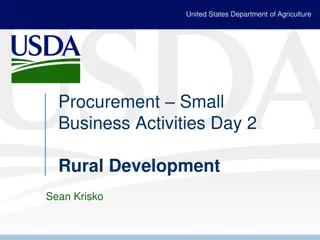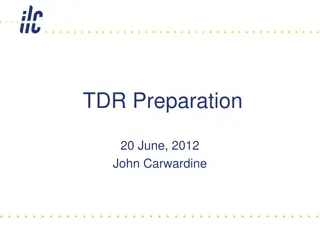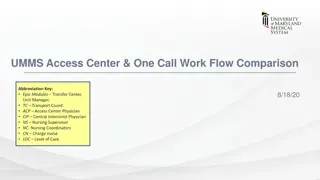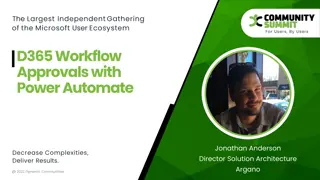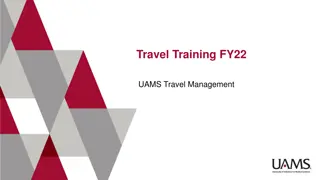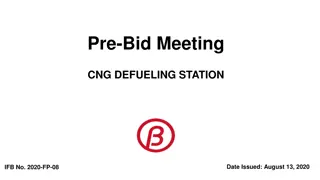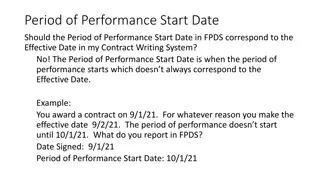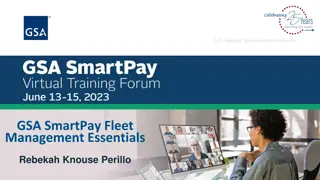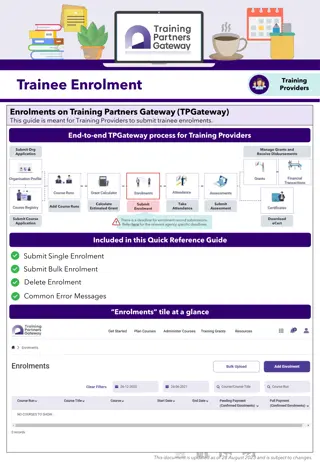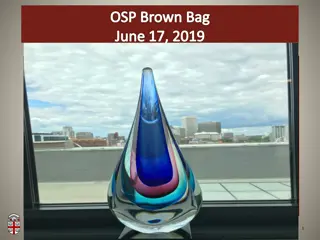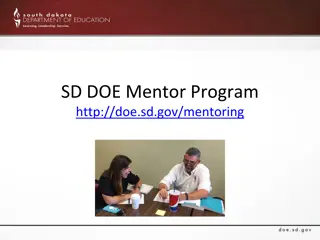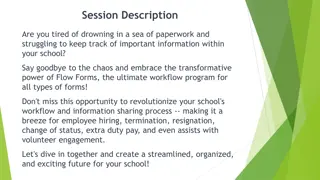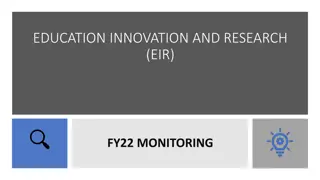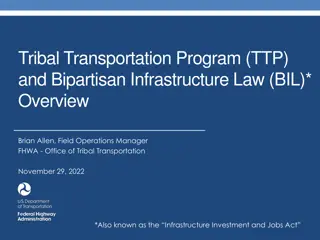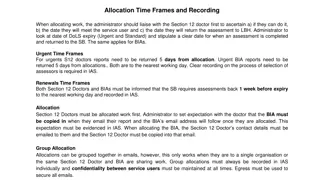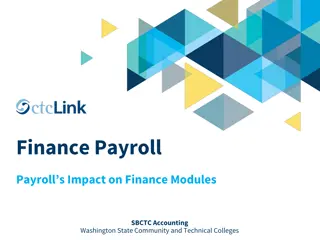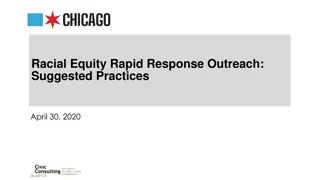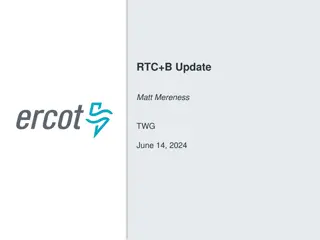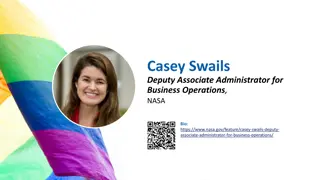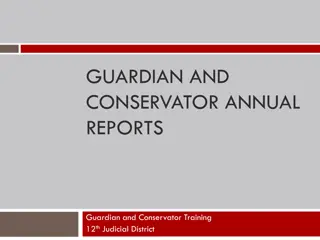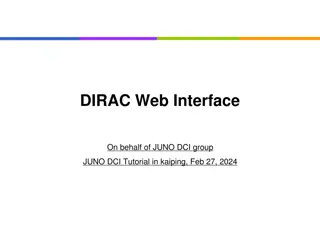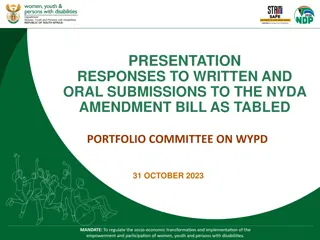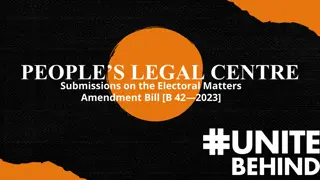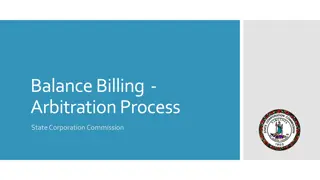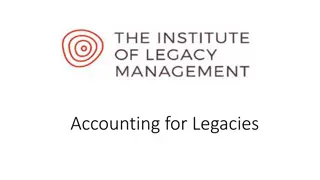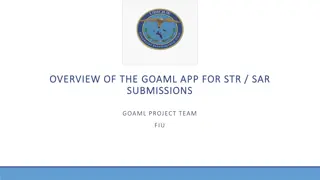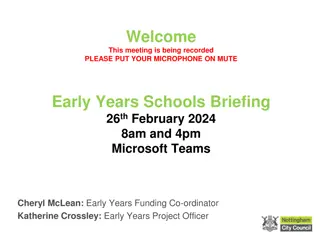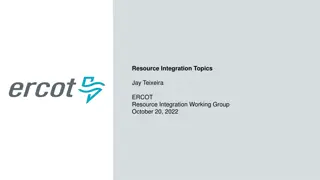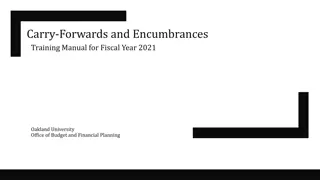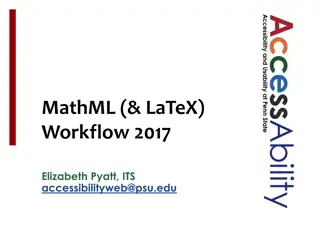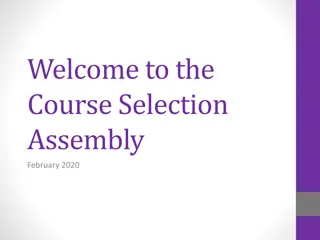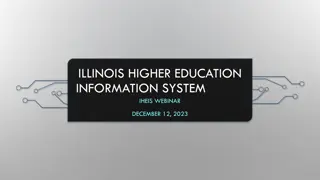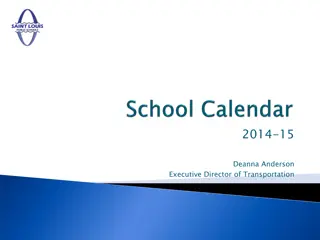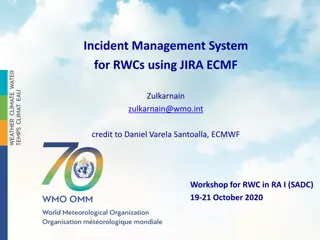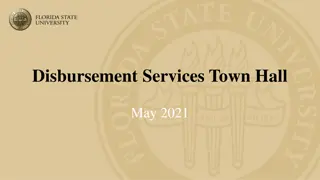New Program Submissions Workflow and Important FY22 Dates
Instructions and workflow for new program submissions in academia, including the Internal Review Grid, Business Case Proposal, Financial Proforma, and submission deadlines. The process outlines steps for undergraduate and graduate programs, courses, and non-credit programs, emphasizing the need for financial resources and approval from relevant authorities.
Download Presentation

Please find below an Image/Link to download the presentation.
The content on the website is provided AS IS for your information and personal use only. It may not be sold, licensed, or shared on other websites without obtaining consent from the author. Download presentation by click this link. If you encounter any issues during the download, it is possible that the publisher has removed the file from their server.
E N D
Presentation Transcript
New Program Submissions Instructions and Workflow including Important FY22 Submission Dates Updated 2/7/20 1
Instructions 1. Internal Review Grid (IRG) To be used for the review and approval for ALL ACADEMIC PROGRAM SUBMISSIONS The Internal Review Grid provides a comprehensive summary of the review and approval steps needed for: All undergraduate and graduate programs, courses, and non-credit bearing programs Indicates which new programs and program revisions are required to be submitted to NYS for approval 2. Business Case Proposal and Financial Proforma To be completed for ONLY THOSE ACADEMIC PROGRAMS REQUIRING new financial resources (eg, faculty, adjuncts, capital, space) These forms provide a comprehensive summary of the market demand and financial resources needed for the new program submission: Business Case Proposal provides a comprehensive market study and program assessment Financial Proforma provides a 5-year financial projection of enrollment, revenue, and profit See Deans Council presentation dates (slide 9 ) 2
Workflow Summary Course Forms or Non-Credit Bearing Programs New Undergraduate or Graduate Program Submission Revise Program Submission Does the course have a proposed area of knowledge (AOK) designation? Does this program require new financial resources (faculty, adjuncts, capital, space)? Does this program require new financial resources (eg, faculty, adjuncts, capital, space)? If yes, complete the necessary steps as outlined in the Internal Review Grid (IRG) on slides, 5-7. If yes, complete the necessary steps as outlined in the Internal Review Grid (IRG) on slides, 5-6. If not, complete the necessary steps as outlined in the Internal Review Grid (IRG) on slide 7. If not, complete the necessary steps as outlined in the Internal Review Grid (IRG) on slides, 5-7. If yes, complete the necessary steps for AOK designation as outlined in the Internal Review Grid (IRG) on slide 7. If not, complete the necessary steps as outlined in the Internal Review Grid (IRG) on slides, 5-6. Prepare the Business Case Proposal and Financial Proforma as described on slide 8. Prepare the Business Case Proposal and Financial Proforma as described on slide 8. Follow the necessary steps for a new or course change procedure. Note important FY22 (Fall 2021/ Spring 2022) submission deadlines and presentation dates to Deans Council as described on slides 9. Note important FY22 (Fall 2021/ Spring 2022) submission deadlines and presentation dates to Deans Council as described on slide 9. 3
1. Internal Review Grid (IRG) The Internal Review Grid provides a comprehensive summary of the review and approval steps needed for all undergraduate and graduate programs, courses, and non-credit bearing programs The Internal Review Grid indicates which new programs and program changes need to go to New York State for approval Please note that the IRG was approved by BOTH the NYCFC and Westchester FC on 2/5/20 & 2/7/20, respectively. 4
IRG UG Degrees Review by Accreditation Liaison Officer (ALO) (Middle States Approval may be Required) Provost final sign off Review & approval by relevant Location Fac. Council Curr. Committees Review & approval by relevant Location Faculty Councils Review through internal School/College procedures Review & approval by Deans Council Undergraduate Degrees (Credit-bearing) Preliminary review by Deans Council New or Existing File application with NYSED Budget Office inclusion into next year s budget (if applicable) 6 Undergraduate degree345 New 1 2 3 4 5 7 New 1 1 2 3 4 5 6 7 Undergraduate degree in a new (outside) location or via a non-accredited third party Existing 1 1 2 3 4 5 6 7 Undergraduate degree via a non-accredited third party, or offered at a new (outside) location 1 2 3 4 5 6 Significant1 Curriculum change to an undergraduate degree Letter of notification suffices 6 1 2 Minimal2 New New New Existing Existing New 1 1 1 1 1 1 2 2 3 3 4 4 2 4 2 4 5 5 3 5 3 5 Undergraduate concentration to an existing program Minor/Badges4 Undergraduate certificate program4 Combined degrees between existing programs Change or addition of degree modality5 Degree title 4 4 6 2 3 2 3 1 Significant change is generally interpreted as requiring the approval of the New York State Education Department. This includes: Cumulative change of one-third or more of the minimum credits required for the award, Changes in a program s focus or design, Adding or eliminating an option or concentration, Eliminating a requirement for program completion, Altering the liberal arts and science content in a way that changes the degree classification, Program title, Program award, Discontinuing a program, Format change, and Creating a new program from a concentration/track in an existing program. 2 If there are deletions or additions of courses that are taken in another department, that department must be informed. 3 A program that is already offered on one campus must be approved as a new program on the new campus before it can be offered on that campus. If a new program proposal requires a master plan amendment (MPA) according to NYSED regulations, the MPA materials should be included with the proposal. 4 Programs that anticipate additional funds must complete a Business Case/ Financial Proforma. 5 When there is a degree modality change involving Distance Education, please perform a review and consultation with Professional Education and Special Programs. 5
IRG GRAD Degrees Review by Accreditation Liaison Officer (ALO) (Middle States Approval may be Required) Provost final sign off Review & approval by relevant Location Fac. Council Curr. Committees Review & approval by relevant Location Faculty Councils Review through internal School/College procedures Review & approval by Deans Council Graduate Degrees (Credit-bearing) Preliminary review by Deans Council New or Existing File application with NYSED Budget Office inclusion into next year s budget (if applicable) 6 Graduate degree345 New 1 2 3 4 5 7 Graduate degree in a new (outside) location or via a non-accredited third party New 1 1 2 3 4 5 6 7 Graduate degree via a non- accredited third party, or offered at a new (outside) location Existing 1 1 2 3 4 5 6 7 1 2 3 4 5 6 Significant1 Curriculum change to a graduate degree 1 2 Letter of notification suffices 6 Minimal2 New 1 2 3 4 5 Graduate concentration to an existing program Certificate of Advanced Graduate Studies4 New 1 2 3 4 Existing 1 2 3 4 5 Combined degrees between existing programs Existing 1 2 3 4 Change or addition of degree modality5 Degree title New 1 2 3 4 5 6 1 Significant change is generally interpreted as requiring the approval of the New York State Education Department. This includes: Cumulative change of one-third or more of the minimum credits required for the award, Changes in a program s focus or design, Adding or eliminating an option or concentration, Eliminating a requirement for program completion, Altering the liberal arts and science content in a way that changes the degree classification, Program title, Program award, Discontinuing a program, Format change, and Creating a new program from a concentration/track in an existing program. 2 If there are deletions or additions of courses that are taken in another department, that department must be informed. 3 A program that is already offered on one campus must be approved as a new program on the new campus before it can be offered on that campus. If a new program proposal requires a master plan amendment (MPA) according to NYSED regulations, the MPA materials should be included with the proposal. 4 Programs that anticipate additional funds must complete a Business Case/ Financial Proforma. 5 When there is a degree modality change involving Distance Education, please perform a review and consultation with Professional Education and Special Programs. 6
IRG Other Review & approval by relevant Location Fac. Council Curr. Committees Review & approval by Dyson Curriculum Committee Review through internal School/College procedures Review & approval by Deans Review & approval by relevant Location Faculty Councils Non-credit bearing programs Provost Sign Off Non-degree 1 7
2. Business Case Proposal & Financial Proforma The following documents should be completed for all academic program submissions requiring new financial resources (eg, faculty, adjuncts, capital, space): Business Case Program Proposal - a conclusive narrative of the program, including a comprehensive market study and program assessment Financial Proforma Model - A 5-year financial projection of enrollment, revenue and profit (see separate files for undergraduate and graduate/special programs) These documents will be presented at Deans Council (presentation dates on slide 9) Please note that the Business Case Proposal and Financial Proforma templates can be found on the Pace website at www.pace.edu/PROVOST (and select Polices and Forms) 8
Important Spring 2020 Dates Please Note: This timeline ONLY applies to program submissions with new financial resource requests. All new programs requiring new financial resources must be fully approved by May 2020 for inclusion in the FY22 Budget (Fall 2021/Spring 2022). Final Review & Approval by Deans Council Preliminary Review by Deans Council Financial Aid Review Committee (FARC) Review of the FY22 Financial Proformas (eg, approved Business Case Program Proposals) requesting new financial resources Review of FY22 Business Case Program Proposals Review of programs with special tuition pricing or financial aid January 14, 2020 February 11, 2020 March 10, 2020 Meets every Tuesday from 1:00pm-2:30pm April 7, 2020 May 12, 2020 (if needed) 9
FY22 Approval Timeline For programs that require new financial resources, the goal of this timeline is to align the financial, operational, and human resource needs with the annual budget cycle. Jan-March 2020 Business Case Program Presentations to Deans Council January 2021 All new program proformas (enrollment, revenue, and expenses) included as part of the FY22 budget April/May 2020 Proformas approved for the Fall 2021/Spring 2022 (FY22) June 2020 Annual Reports due with review of prior year, objectives for current year, and resources needed for new year (FY22) November 2020 Submission of new financial resources as part of FY22 annual budget cycle July 2020 June 2020 Request for capital funds for FY22 Review and approval of new faculty requests for Fall 2021 hire (FY22) 10
Contact Information For questions on the NYSED approval process or Business Case Proposal and Financial Proforma, email programreview@pace.edu or call (212) 346-1956 For questions on MSCHE, email ALO@pace.edu Please visit the Pace University website: www.pace.edu/PROVOST (and select Polices and Forms) 11
